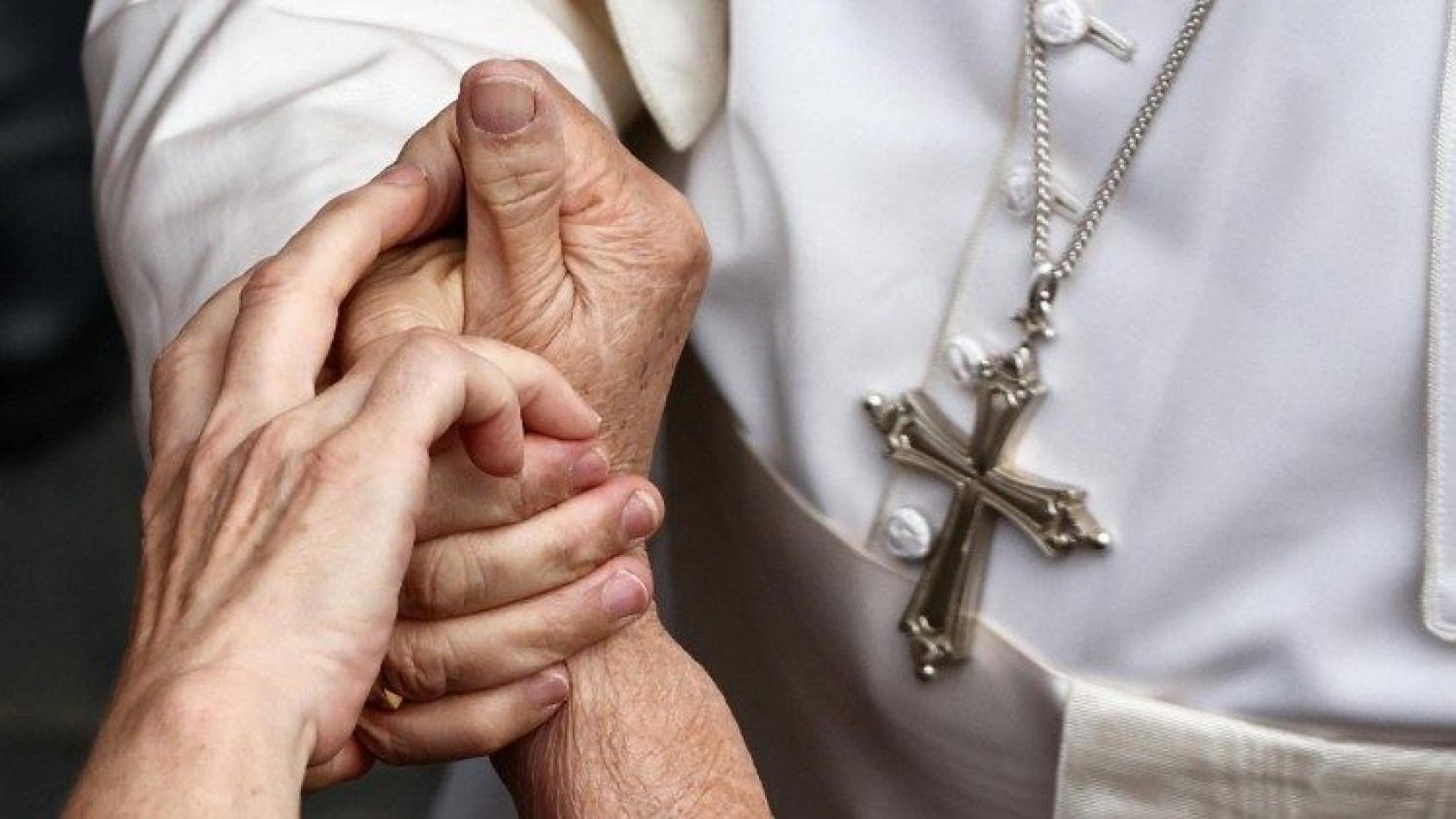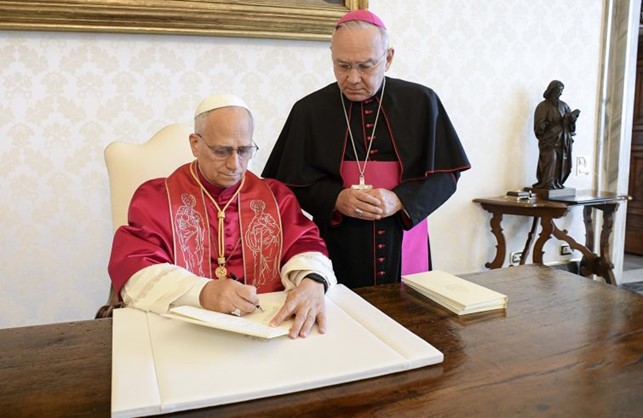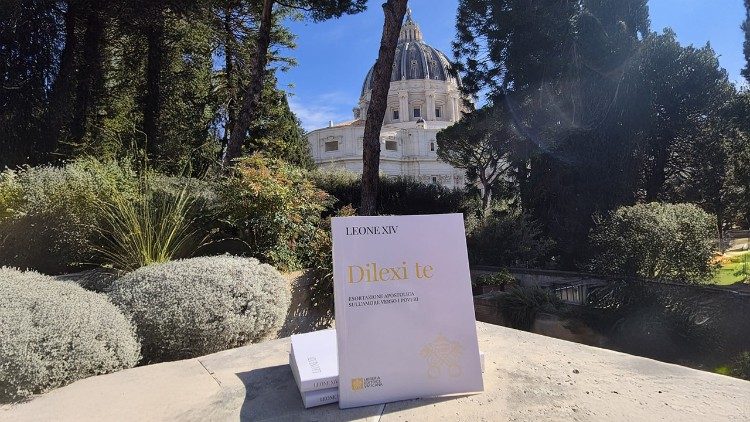Daniel Comboni
Comboni Missionaries
Institutional area
Other links
Newsletter
Thursday, October 9, 2025
Pope Leo XIV's first Apostolic Exhortation builds upon the document prepared by Pope Francis in the last months of his life, reviving the vision revealed by Bergoglio to the media three days after his election: “How I would like a Church that is poor and for the poor!” “Resolve the structural causes of poverty,” writes the Pope: for the Christian faith, “charity is not optional”, “charity has the power to change reality.” [Foto Vatican Media/SIR. To read the full text of “Dilexi te”, click here]
“All the members of the People of God have a duty to make their voices heard, albeit in different ways, in order to point out and denounce such structural issues, even at the cost of appearing foolish or naïve”.
“The condition of the poor is a cry that, throughout human history, constantly challenges our lives, societies, political and economic systems, and, not least, the Church”, writes Leo XIV in the Apostolic Exhortation Dilexi Te, initiated by Pope Francis in the last months of his life, in continuity with the encyclical Dilexit Nos, to which Leo XIV contributed his own reflections. The missionary Pope, all too familiar with the plight of the poor, revives the vision Pope Francis made public three days after his election: “How I would like a Church that is poor and for the poor!”
“We need to be increasingly committed to resolving the structural causes of poverty”, the Pope denounced: “Inequality is the root of social ills”, for “it frequently becomes clear that, in practice, human rights are not equal for all. Either we regain our moral and spiritual dignity or we fall into a cesspool. All the members of the People of God have a duty to make their voices heard, albeit in different ways, in order to point out and denounce such structural issues, even at the cost of appearing foolish or naïve.”
“The commitment to the poor and to removing the social and structural causes of poverty has gained importance in recent decades, but it remains insufficient”, denounced the Pope, recalling the new and old forms of poverty, including that of women who are “doubly poor” because victims of exclusion, mistreatment and violence. But poverty “is not a choice”: “Christians too, on a number of occasions, have succumbed to attitudes shaped by secular ideologies or political and economic approaches that lead to gross generalizations and mistaken conclusions.”
“Anyone in need, even an enemy, always deserves our assistance”, says Leo XIV. “The Church, must be a Church of the Beatitudes”, is the Pope’s mandate for the ecclesial community. Works of mercy “are recommended”, but beware of “the risk of living our relationships according to a logic of calculation and self-interest”, is the Pope’s guidance, drawing inspiration from the life of the first Christian communities.
“Charity is not optional.” In the document, Pope Leo cites the figure of St. Augustine as a “sure light” for the Church, highlighting his care for the sick in Catholic hospitals, “field hospitals in war zones”; the commitment of monks, such as St. Benedict, and mendicant orders to combatting “the culture of exclusion”; and their mission to liberate prisoners and improve the conditions of inmates. St. Francis of Assisi is the primary inspiration for the Apostolic Exhortation, the “icon” of this “spiritual springtime”, whose life “was one of continuous self-emptying.”
“For the Christian faith the education of the poor is not a favour but a duty”, reads the text, referring to the contribution that the various religious orders of religion active in this field have made to the history of the Church.
“The Church has always recognized in migrants a living presence of the Lord”, The Pope’s reference to one of the key themes of his predecessor. “The Church’s tradition of working for and with migrants continues, and today this service is expressed in initiatives such as refugee reception centres, border missions and the efforts of Caritas Internationalis and other institutions”, noted Leo: “Contemporary teaching clearly reaffirms this commitment”, he adds mentioning Pope Francis and the four verbs that encapsulate the migration challenge: “welcome, protect, promote and integrate.” Verbs that “do not apply only to migrants and refugees”, but which “describe the Church’s mission to all those living in the existential peripheries.” “The Church, as a mother, accompanies those who are walking”, comments the Pontiff: “In every rejected migrant, it is Christ himself who knocks at the door of the community.”
The Exhortation also contains an appeal, addressed to politicians and to the Church, to listen to popular movements, if not, “democracy atrophies.” “Charity has the power to change reality; it is a genuine force for change in history”, assures the Pope, calling for an “urgent” commitment to “resolve the structural causes of poverty. it is a matter of hearing the cry of entire peoples, the poorest peoples of the earth.”
“We must continue, then, to denounce the “dictatorship of an economy that kills,” and to recognize that “while the earnings of a minority are growing exponentially, so too is the gap separating the majority from the prosperity enjoyed by those happy few”, writes Leo XIV following in the footsteps of Pope Francis, denouncing the “imbalance” that is “the result of ideologies that defend the absolute autonomy of the marketplace and financial speculation” and “reject the right of States, charged with vigilance for the common good,” thereby establishing “a new invisible and often virtual tyranny, which unilaterally and relentlessly imposes its own laws and rules.” “The dignity of every human person must be respected today, not tomorrow”, the Pope writes, underlining the notion of “social alienation” found in Dilexit Nos, whereby “it then becomes normal to ignore the poor and live as if they do not exist.”
“No Christian can regard the poor simply as a societal problem”, for “they are part of our family”: “They are one of us”, We cannot “abandon the poor to their fate.” “The sight of a person who is suffering disturbs us, it makes us uneasy, since we have no time to waste on other people’s problems. These are symptoms of an unhealthy society.” “Not infrequently, our prosperity can make us blind to the needs of others, and even make us think that our happiness and fulfillment depend on ourselves alone, apart from others”, notes Pope Leo, for whom “the poor can act as silent teachers for us, making us conscious of our presumption and instilling within us a rightful spirit of humility.” Thus, “the poor, too, remind us how baseless is the attitude of aggressive arrogance with which we frequently confront life’s difficulties. They remind us how uncertain and empty our seemingly safe and secure lives may be.” The preferential option for the poor is “essential”, concludes the Pope: “for Christians, the poor are not a sociological category, but the very ‘flesh’ of Christ.”
M. Michela Nicolais – SIR






